Teruyasu Fujiwara
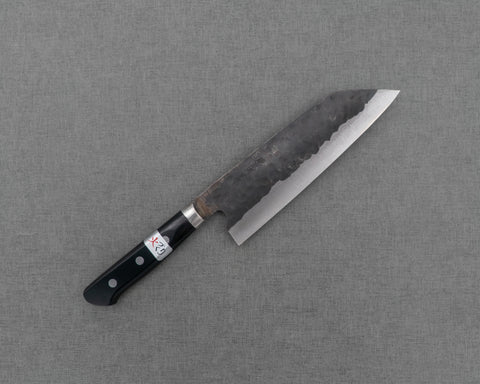
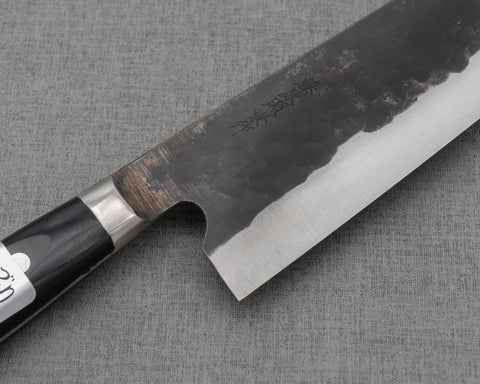
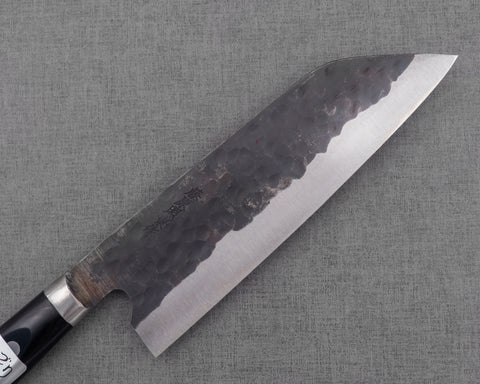
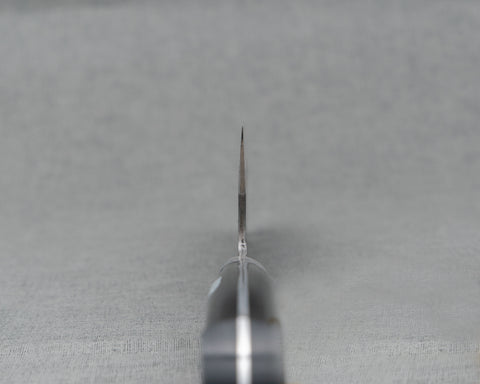
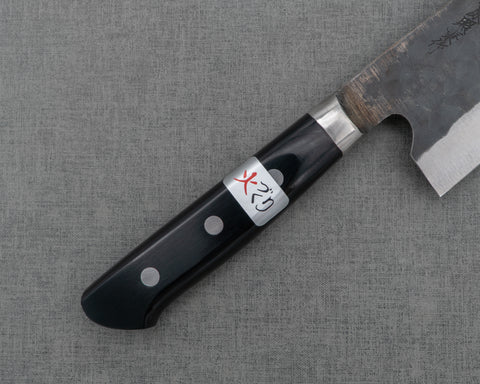
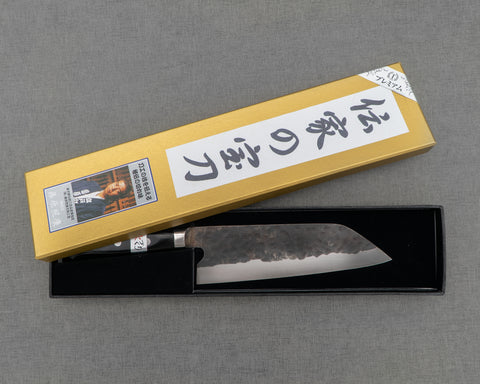
Teruyasu Fujiwara "Denka no Hoto" Aogami Super Tsuchime Kurouchi 180mm Santoku
目前沒有提供取貨服務
This Santouku from the "Denka no Hoto (伝家の宝刀)" range is handcrafted by Mr. Teruyasu Fujiwara with Aogami Super steel core and clad in stainless steel. The blade is heat-treated to a high hardness of 64-65 HRC, which ensures excellent edge retention. The blade features Tsuchime (hand-hammered) pattern and a blacksmith Kurouchi finish, and is fitted with a Western handle made of black pakkawood. Mr. Fujiwara insist in making these knives from ground up, and from start to finish, with a focus on superior heat-treatment and grinding. The finishes of these knives have a rough and rustic look, but the blade itself is simply exceptional. You'll be amazed how well and fast these blades cut.
Spec:
- Origin (Made in): Tokyo, Japan
- Brand: Teruyasu Fujiwara
- Craftsman: Teruyasu Fujiwara
- Knife Type: Santoku
- Blade
- Construction: San Mai
- Grind: Double-edged Blade (50/50 Grind)
- Hagane (Core Steel): Aogami Super
- Jigane (Cladding): Stainless Steel
- Hardness: 64-65 HRC
- Hand-forged, hand-grinded, hand-sharpened
- Blade Finishes:
- Tsuchime (Hammered)
- Kurouchi
- Tsuchime (Hammered)
- Blade Length: 175mm (6.9")
- Blade Height (at heel): 55mm
- Spine Thickness
- Above heel: 2.2mm
- Middle: 2.0mm
- Handle
- Shape: Western-Shaped
- Material: Black Pakkawood
- Bolster: Stainless Steel
- Length: 120mm
- Overall Length: 310mm
- Weight: 195g (6.88oz)
- Engraved Mark: In Japanese Kanji "Teruyasu Fujiwara Made" (藤原照康 作)
About Teruyasu Fujiwara 藤原照康
Master Teruyasu Fujiwara is the fourth generation blacksmith of the Fujiwara family, with a history of sword-forging since 1870. After the Second World War, the production of swords was limited, so Mr. Fujiwara decided to adopt his traditional blade forging techniques from the early-Meiji era into making modern kitchen knives. It is Mr. Fujiwara’s motto to make practical and extremely durable knives that can last decades. His knives are, in his own words, "expected to be passed down from father to son, and mother to daughter".
Care:
Aogami Super (Blue Super) steel is considered the most superior Japanese high carbon steel for knife making. It is not stainless, therefore you must wipe your knife dry after each use, in particular the core steel not covered by the stainless cladding. Patina will develop over time, which will appear as “discoloration” on the cutting edge, but that is the nature of carbon steel - not a defect. The stainless cladding covers a large part of the blade, making maintenance easier but still preserving the cutting and sharpening pleasure of the Aogami Super core. Avoid cutting into bones, frozen foods, hard fruit pits.
Cutting Surface:
Recommended cutting surface: wood, rubberized boards and high-end composites, and quality plastics such as polyethene make acceptable cutting surfaces, and will help protect and prolong knife’s edge. AVOID glass, metal, countertops, and other rigid, non-forgiving surfaces.
Sharpening:
We recommend sharpening all quality Japanese knives on whetstones, as we believe they yield the best results for your knives.
Excellent service, speedy delivery and a quality Fujiwara at a reasonable price.
I've always wanted a Fujiwara Denka and it has exceeded my expectations. It is very sharp, rustic and well balanced and makes a unique and pleasing sound that is hard to describe. Overall another fantastic Burrfection experience.
